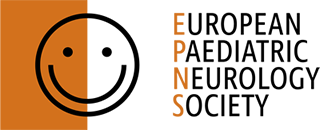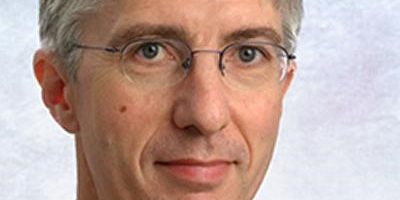Congratulations to Professor Colin Kennedy from United Kingdom who will be awarded honorary EPNS membership during the EPNS Congress networking event in Athens which is due to take place on the evening of Thursday 19 September 2019. EPNS honorary members are described in our constitution as ‘persons the society wishes to honour for outstanding distinction in the field of paediatric neurology.’
Biographical and achievement details:
Date and place of birth: 16th July 1952 Edinburgh, Scotland
Undergraduate and postgraduate training: 1975 BA Hons (First Class) Philosophy, Psychology, and Physiology University of Oxford / 1978 MB BS University of London / 1987 MD University of London / 1987 Dual accreditation in Paediatrics and Paediatric Neurology JCHMT, RCP, London / 1978 House officer (Westminster, St Stephens Hospitals, London) / 1979 SHO Respiratory Medicine, Hammersmith Hospital, London / 1980 SHO Neurology, Natnl Hosp for Neurol. &Neurosurg., Queen Square, London / 1980 Member (then Fellow) Royal Coll. of Physicians / 1980-81. SHO, General Paediatrics and Neonatology at Northwick Park Hospital, Harrow / 1981-2 SHO eurol.&Infectious Diseases, Great Ormond Street Children’s Hospital. / 1982-1984 MRC Research Fellow, Northwick Park Clinical Research Centre, Harrow and Guys Hospital, London / 1984-1987Clinical Lecturer, Child Health, University of Southampton (with 2 yrs in USA) / 1985-1987 Fellow in Child Neurology, Neurology, Johns Hopkins Hospital, Baltimore, USA / 1996 Royal College of Paediatrics and Child Health Foundation Fellow.
Present appointments – Affiliation: Consultant in Paediatric Neurology, University Hospital Southampton NHS FT, UK (from 1988) / Professor in Neurology and Paediatrics, FoM, University of Southampton (from 2006)
Major contributions to Paediatric Neurology
Research: He has published about 120 peer-reviewed publications, including about 80 original reports. His studies in acute encephalitis in childhood showed that a high proportion of encephalopathies meeting carefully applied criteria for that diagnosis were of viral origin and defined age and clinical evidence of cerebral hemisphere involvement as powerful predictors of clinical outcome. He conceived and led a novel international multicentre randomized controlled drug trial that led to discontinuation of the use of diuretics for post-haemorrhagic ventricular dilatation (PHVD) in premature infants: our reports and related Cochrane review, showed that the treatment was ineffective and harmful. The trial strategy, especially with respect to outcome measurement, provided the template for the subsequent UKISS and ICISS infantile spasms treatment trials that he co-authored. He played a major role in the largest published study of pseudotumour cerebri syndrome in childhood that established its epidemiology, clinical features and associated risk factors with unprecedented precision. A treatment trial may yet follow. Around 1987, he embarked on two lines of research that constitute the majority of his subsequent research effort: First he conceived and led a unique programme of research in which a series of studies over 20 years and 20 related publications provided the bulk of the ‘high quality’ international evidence base, as assessed by the US Preventative Services Task Force (USPSTF), for Universal Newborn Hearing Screening (UNHS) for permanent childhood hearing loss (PCHL). These showed that UNHS was an effective screen and was associated with superior language and reading skills, benefits that remained demonstrable at the age of 17 years. These studies led the UK National Screening Committee and the USPSTF to change national policy in the UK and USA. Many other countries have followed suit and PCHL is now by far the commonest health condition detected by newborn screening – an unusual coincidence of paediatric neurological disorder and public health issue. Second, he led a concerted long-term effort to make measurement of quality of survival (QoS) a central feature of European treatment trials for childhood brain tumours. The challenge was to arrive at a single robust dataset of neuro-developmental outcome over a wide age range of children and young people. This was achieved with a framework that depended on patient-reported outcomes in multiple European languages. Its creation, which took decades of discussion and consensus-building across Europe, was finally published in 2015. Its application has shown important differences between treatment regimens with respect to subsequent QoS. Families now provide these data on-line via their own laptops and tablets. Similar efforts by others in North America mean that a single dataset would now be achievable in an intercontinental paediatric neuro-oncology treatment trial. Finally, in a more recent development of this work in collaboration with Professor Grootenhuis in Leiden and others, he is leading UK efforts to use feedback of patient-reported data on quality of life to improve the outpatient NHS care of individual children after childhood brain tumours in the UK. This method will be readily applicable to children and young people with other long term neurological conditions, whether or not enrolled in a trial.
Organisation and Delivery of Clinical Care
Regionally: He was the first Paediatric Neurologist appointed to set up a Southampton-based specialist service to serve a population of 3-3.5 million in central southern England and remained its Clinical Lead for 25 years. After five years single handed, he was joined by a colleague. It was a further ten years before the service had three whole time equivalents (wte) senior medical staff. Now there are seven. Throughout that 25 years, the service was supported by nurse specialists and therapists of the highest quality and by excellent Intensive Care, Paediatric and Neuroscience specialists and supporting services. This was the centre of his professional life. He accepted particular responsibilities in neuro-oncology at the end of his training in the USA. He continues to play an active clinical role in that field and, with the support of an oncologist and a neurosurgeon, wrote the relevant section in the 2018 edition of Aicardi’s Diseases of the Nervous System in Childhood. The gradual evolution of paediatric neurorehabilitation is one area of care delivery in which his region has been ahead of the curve, thanks to the extraordinary therapists and nurses in that interdisciplinary clinical team in which he was privileged to work.
Nationally and Internationally: He has contributed in many ways to the specialty of Paediatric Neurology. In the UK, this was principally as secretary, educational lead and then president of the BPNA, the UK national specialty group. He brought some of those ideas with him to discussions in the board of the EPNS under the skillful chairmanship of Paul Casaer, its first elected president, whom Colin succeeded in that office. He was co-signatory of the Constitution of the EPNS and co-author of the European Syllabus which enshrines, among other important features, the important principle of access to the specialty from a background of either Neurology or Paediatrics. He played a major role in the creation of the Committee of National Advisors, the Training Advisory Board and the opportunities that sprang from them which have proved surprisingly powerful in bringing about positive change in the real world of providing training and health care. Disparities in the care of children neurological problems between sub-regions of Europe (as geographically defined by WHO) remain large. He continues to work to ameliorate these challenging problems with WHO. Working on this with colleagues in EPNS, EACD, Central Asia and the Caucasus continues to be a great pleasure for him. A second edition of Principles and practice of child neurology in infancy, the book that he edited and co-authored with colleagues across Europe to address this issue, is in preparation and will also become the basis of an on-line course. This book is a useful tool in the continuing global struggle to modernise the care of children with neurological problems. His view is that his principal contribution, overall, has been in providing clinical care as part of an exceptional interdisciplinary team.

